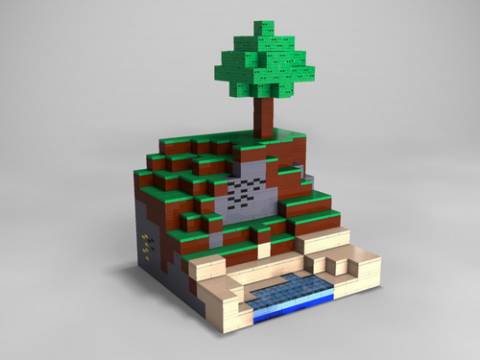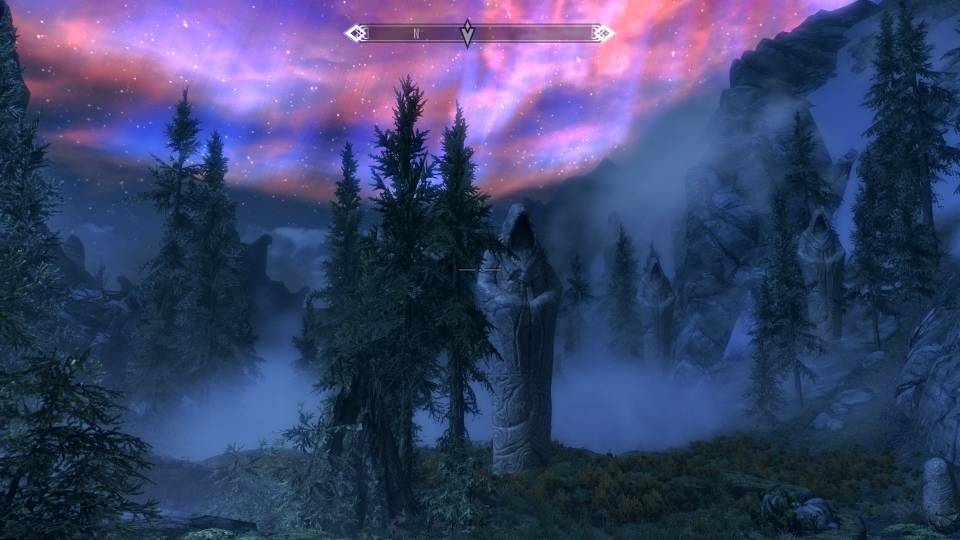An Economy Of Scale
By Lies 36 Comments
Long time no see, Giantbomb.
I'm here to talk to you about The Elder Scrolls V: Skyrim, and why it is not the best game of the year, and why it fooled so many critics and consumers. I want to make it clear, because I know how, ahem, rational this debate can get, that I do not think you are a bad person or your opinion is wrong in any way if you enjoy Skyrim and think it was the game of the year. I think I understand why that's the prevailing opinion, perhaps I even understand it in a way you yourself have not considered. Perhaps you understand it in a way that entirely eluded me. Regardless, I believe we can peacefully coexist, and I simply ask you hear me out. I promise it'll be worth your time.

Videogames, as they mature and grow as an entertainment medium, and some would say an artform, are expanding exponentially in scope, to the point where seeing a statistic along the lines of say, "72% percent of households in America play videogames", actually does not inform you in any significant way, because of the myriad subcategories inherent. Cell phone games, smartphone games, educational games, console games, camera games, etc can all fall under the umbrella of videogames. And then there are the porous borders of the term: does Windows solitaire count? What about online poker? Scene-It? They're certainly games, displayed on video screens, and they react to player input. By all the denotative limits of the term, yes, they do count. But many a person would argue against their inclusion. The term "videogame" holds no inherent meaning nowadays to the general culture, other than as a broad umbrella. And so we see fracturing and categorization- the list I gave before. All videogames, all different enough to deserve a named category, without descending into enthusiast jargon. All these videogames, with their common heritage and characteristics, and herded apart and divided, mostly according to one thing: scale.
To our particular subculture-- which for shorthand's sake I'll call hardcore gamers (although I am certainly not ignorant of the connotation and conflict that surrounds the terminology, in this case simply consider it an easy way to separate the community that concerns itself primarily with console games and things like Game Of The Year awards from the unwashed smartphone and Wii Sports masses)-- the highest-level attribute of a videogame is its scale. Before platform, before developer, before influences, before even genre, the defining characteristic is scale. Scale, scope and ambition hold sway over the imaginations of our community. The much lauded "depth" of a game is a natural subset of this scale. A man more secure in his audience's attention might meander about whether that obsession is culturally-induced and what it reflects about our community, but for today, we'll simply content ourselves with the fact that it does, indeed, exist.

What's a "real game"? Skyrim's a real game; that's a statement you wouldn't find much challenge on. Kinectimals? Maybe there's a bit more discussion there. There's less to do, it's more of a virtual pet. It's a simulator. Is such a thing worth our time? There's no scale to the endeavor. Rayman Origins? By all accounts one of the most excellent, tight, creative and polished games to come out of a major studio in a while? Dropped to $19.99 already. Not near enough scale and perceived value in that project to survive in a retail market against a juggernaut like Skyrim. Forget about even trying to bring a portable game or a smartphone game into that discussion. Listening to the Giantbomb GOTY podcasts, watch for how quickly Patrick is shrugged off trying to insert Sword and Sworcery into the deliberations. Even to professionals, scale and scope are kings. It couldn't possibly match up. Minecraft? That's an interesting one: the potential for amazing scale is there, but the onus is on the player, not the developer. Thus it attracts a different audience, creators instead of consumers, and to consumers it has perhaps the least scope out of all of these. Minecraft is a blank page, not a completed manuscript. Minecraft is a LEGO set, not a cathedral (I think it's absolutely hilarious that they're making physical Minecraft LEGO, when Minecraft was pretty much a virtual LEGO set).
Look to our own wiki on Giantbomb: no flash games. No scope, no scale. No two-hundred person development team. Not notable.
So scale matters. It matters most, on a meta-level, to the categorization of games, and what we see is that the largest games, those with the most scope and scale and ambition become the games. They become the games that matter, they become the top ten games to look forward to in 2012, they become the future of gaming. They become, ultimately, the game of the year.
And I'm here to say: we are blind.
We Come To Skyrim
We come to Skyrim to drown ourselves in fantasy. We come to Skyrim to get lost. We come to Skyrim for the scale.

And here's what's so clever about Skyrim: it uses that scale to distract you from the fact that it actually spends a good 80% of it's time being a pretty mediocre first-person combat game. The role-playing elements are simply trappings: they hang around, colouring and contextualizing the combat in a clever display of sleight-of-hand. And the combat's simply not that good. Better than we've seen in Elder Scrolls previously, no doubt, but the combat in Skyrim is not by any stretch of the imagination, the strong suit of the game. Yet that is where the meat of the game lies, elements of story and world stringing you along from combat to combat. Combat is your only method of SIGNIFICANT interaction with the world of Skyrim. And herein is the issue.
The categorization of Skyrim as a role-playing game is almost disingenuous. I can't say it's a lie, but there's an element of tilt to the statement: it's an action game with extremely complicated and interactive interludes between levels. Which, ultimately, appears to be the direction the modern RPG is moving in, so perhaps I'm spilling words into an issue everyone already knows about. But for a game to get this level of acclaim solely for scale is ridiculous. What you spend your time doing in Skyrim is fighting. Fighting clunky controls and heavily scaling enemies. Sure, you have the option of fighting with magic or swords or archery, but none of those systems are as good as they would be if the scale of the game was less. Ultimately, I don't understand why we should praise Bethesda for managing to cram a bunch of mediocre gameplay systems into one game. Sure, it's an undertaking of impressive scale, but the scale doesn't excuse the mediocrity of the actual gameplay. If what you're doing for a good 80% of the game is simply average (if anyone here will argue that Skyrim's combat is great, I will fight you), does scale really excuse it?
According to Metacritic it does. And I don't know; it seems ridiculous to me. Am I crazy? Or are Bethesda just some of the greatest sleight-of-hand artists our industry has ever seen?
